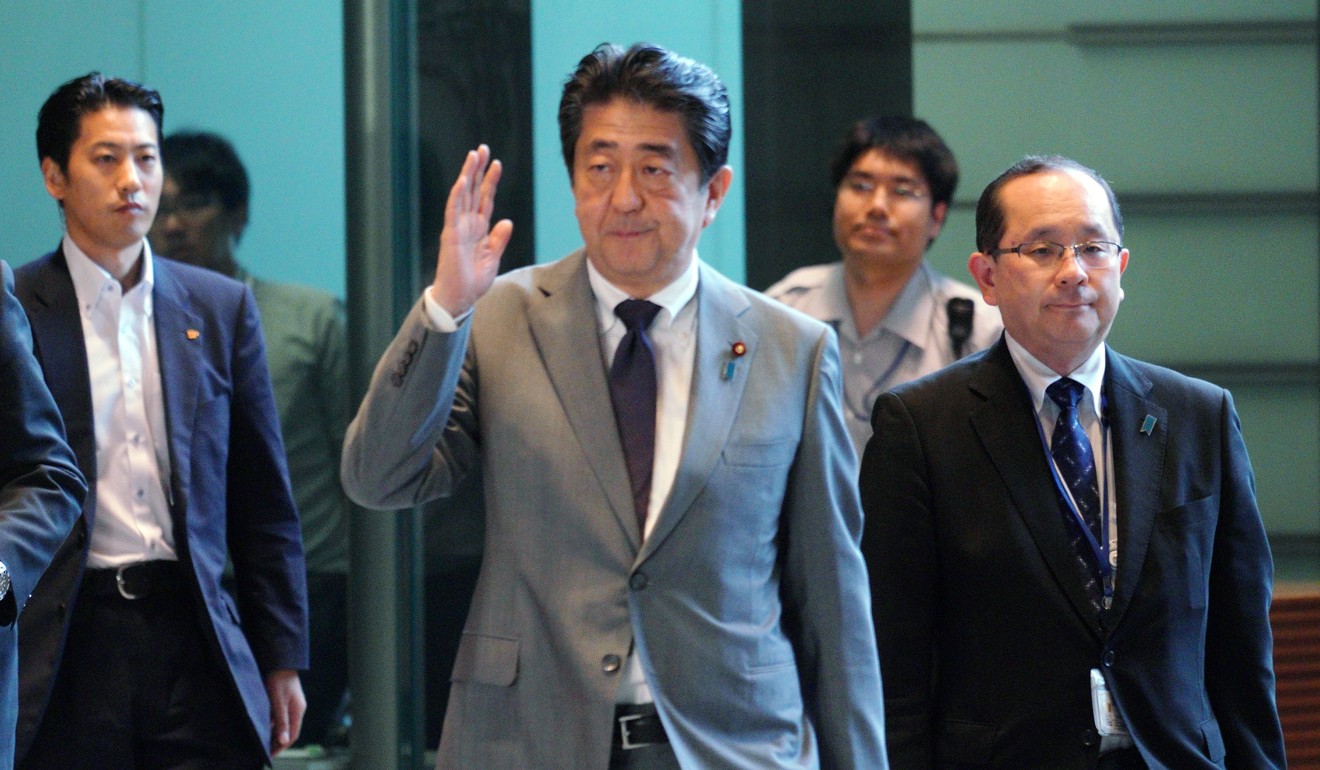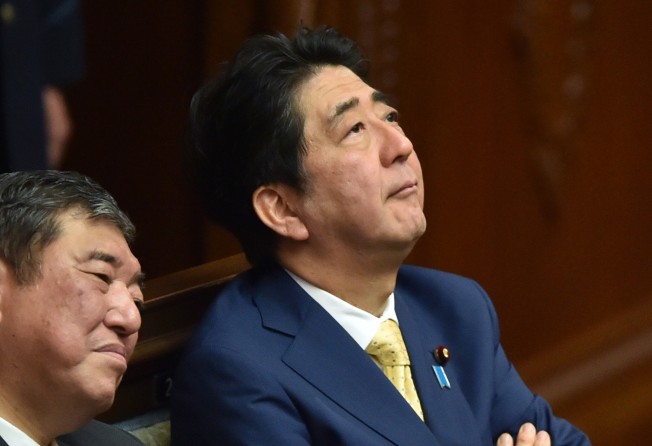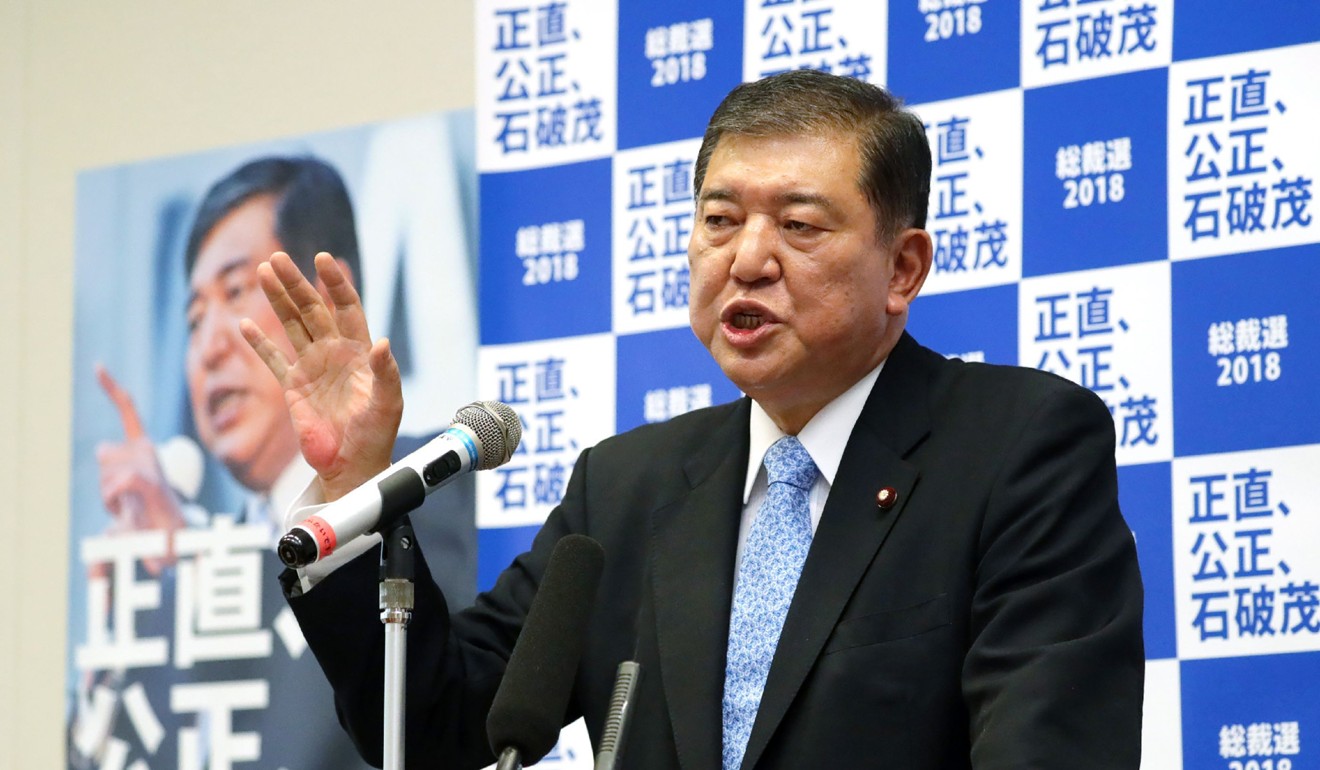
Japanese PM Shinzo Abe faces long-shot challenge from Shigeru Ishiba, a former defence minister
Abe will be ensured a third term and be on track to become Japan’s longest-serving prime minister if he wins the Liberal Democratic Party’s leadership vote on September 20.

Japan’s ruling Liberal Democratic Party on Tuesday formally decided to hold its leadership election next month, in what is likely to be a two-way battle between Prime Minister Shinzo Abe and former defence minister Shigeru Ishiba.
The LDP election effectively determines who will be prime minister. If Abe wins the leadership vote on September 20, he would be ensured a third term and be on track to become Japan’s longest-serving leader.
The Abe-led LDP won a landslide victory in the House of Representatives election in October last year. The next lower house election will be held in 2021 unless the body is dissolved.
With the official LDP leadership campaign beginning on September 7, it is expected to effectively be the first such election in six years, as Abe was re-elected unopposed for his second consecutive three-year term in 2015.

Although he has yet to officially throw his hat into the ring, the incumbent party president is widely viewed as leading the race since five of seven intraparty factions have expressed their support for him.
Abe, whose tenure expires on September 30, is likely to declare his candidacy next week, according to party sources.
Ishiba, who has assumed top posts such as minister in charge of revitalising local economies and LDP secretary general under Abe’s reign, is seeking to broaden his support base among rank-and-file party members, who will also cast their ballots in the race.
Despite the odds being against him, Ishiba said on Tuesday that if he or any other candidate did not run, this would undermine democracy in the country.
In the first round of voting, the contenders will aim to secure a majority among 810 votes – 405 by lawmakers and the same number by rank-and-file members. If none of them wins a majority in that stage, a run-off will be held in which ballots by Diet members weigh more.

One of the main issues is likely to be revisions to the constitution, in particular its war-renouncing Article 9. While the two likely contenders share the intention to amend Japan’s supreme law, they are different in their approach to dealing with Article 9.
Abe has called for adding an explicit reference to the Self-Defence Forces to ensure there is no way for them to be deemed “unconstitutional”.
Earlier this month, Abe said his party should submit constitutional revision proposals to the extraordinary Diet session expected to be convened in the fall.
Ishiba, known as a security hawk, has proposed drastically rewriting Article 9, in a way that implies removing the current post-war constraints imposed on the forces’ activities.
But on Friday, he insisted amendments to Article 9 should not be rushed, citing a lack of public understanding of the issue.
Ishiba did however stress the urgency of revising the constitution on points such as giving the prime minister extraordinary power in case of emergencies including natural disasters.